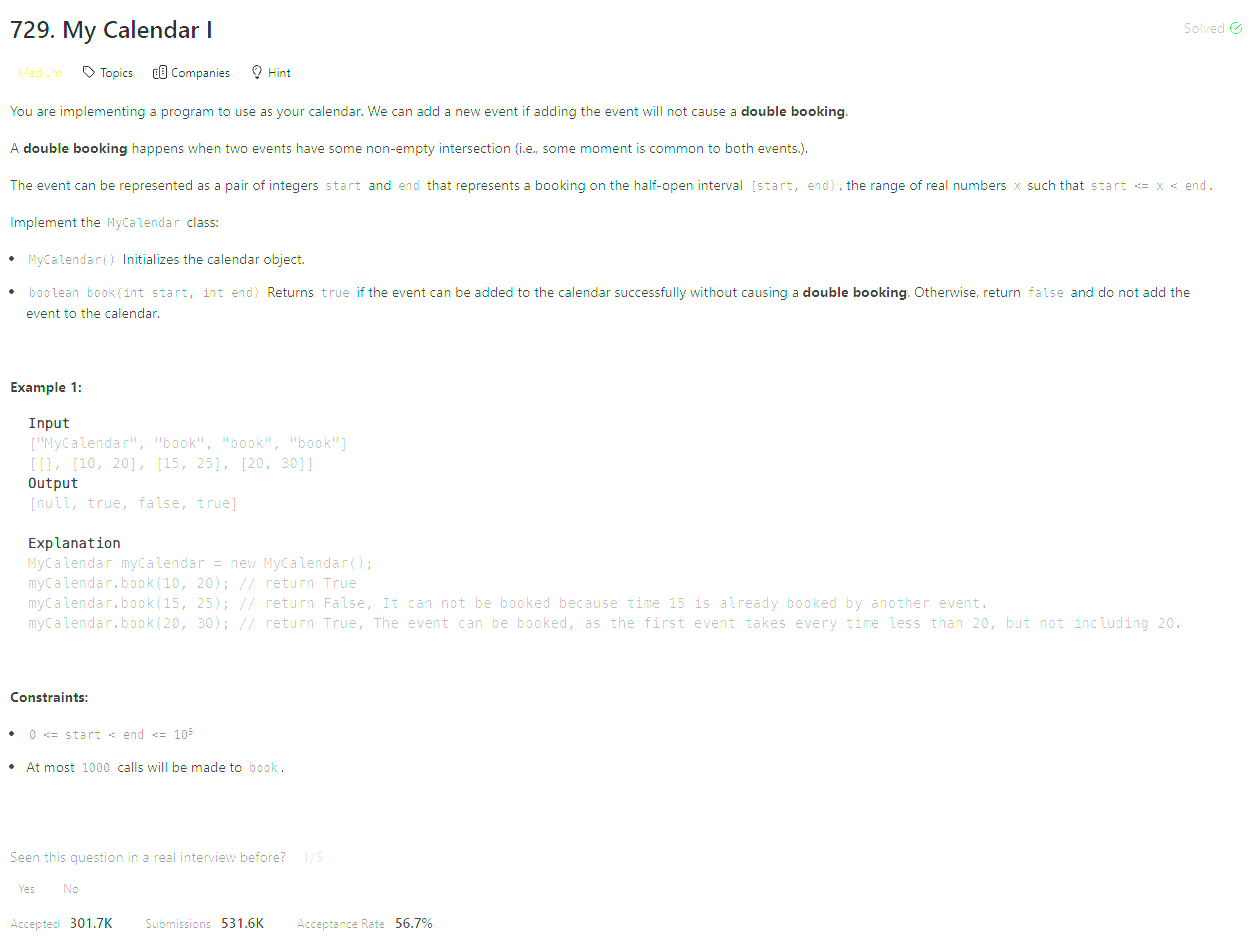Problem of The Day: My Calendar I
Problem Statement

Intuition
The idea is to maintain a list of already booked intervals and check for any overlap with the new booking request. If the new interval overlaps with any of the existing intervals, we should reject the booking. Otherwise, we add the new interval to our list of booked intervals.
Approach
- We maintain an array
arrto store all booked intervals as pairs of [start, end]. - For each new booking request, we iterate through the
arrto check if it overlaps with any of the existing bookings.- An overlap occurs if
end > booked_startandstart < booked_end.
- An overlap occurs if
- If there is no overlap with any existing booking, we add the new booking interval to
arrand returnTrue. - If there is an overlap, we return
False. - Finally, we sort the array
arrto keep the intervals in order, although this step is optional for correctness.
Complexity
-
Time complexity:
- For each booking request, we check all existing bookings in the worst case, which is \(O(n)\), where
nis the number of bookings made so far. Sorting the array costs \(O(n \log n)\), but it’s optional.
- For each booking request, we check all existing bookings in the worst case, which is \(O(n)\), where
-
Space complexity:
- We store all the bookings in a list, so the space complexity is \(O(n)\), where
nis the number of bookings.
- We store all the bookings in a list, so the space complexity is \(O(n)\), where
Code
class MyCalendar:
def __init__(self):
self.arr = []
def book(self, start: int, end: int) -> bool:
if self.arr:
for booked_start, booked_end in self.arr:
if end <= booked_start:
continue
if start >= booked_end:
continue
return False
self.arr.append([start, end])
self.arr.sort()
return True
# Your MyCalendar object will be instantiated and called as such:
# obj = MyCalendar()
# param_1 = obj.book(start,end)
Editorial
Approach #1: Brute Force
class MyCalendar:
def __init__(self):
self.calendar = []
def book(self, start, end):
for s, e in self.calendar:
if s < end and start < e:
return False
self.calendar.append((start, end))
return True
- time: O(N^2)
- space: O(N)
Approach #2: Sorted List + Binary Search
from sortedcontainers import SortedList
class MyCalendar:
def __init__(self):
self.calendar = SortedList()
def book(self, start: int, end: int) -> bool:
idx = self.calendar.bisect_right((start, end))
if (idx > 0 and self.calendar[idx-1][1] > start) or (idx < len(self.calendar) and self.calendar[idx][0] < end):
return False
self.calendar.add((start, end))
return True
- time: O(NLogN)
- space: O(N)